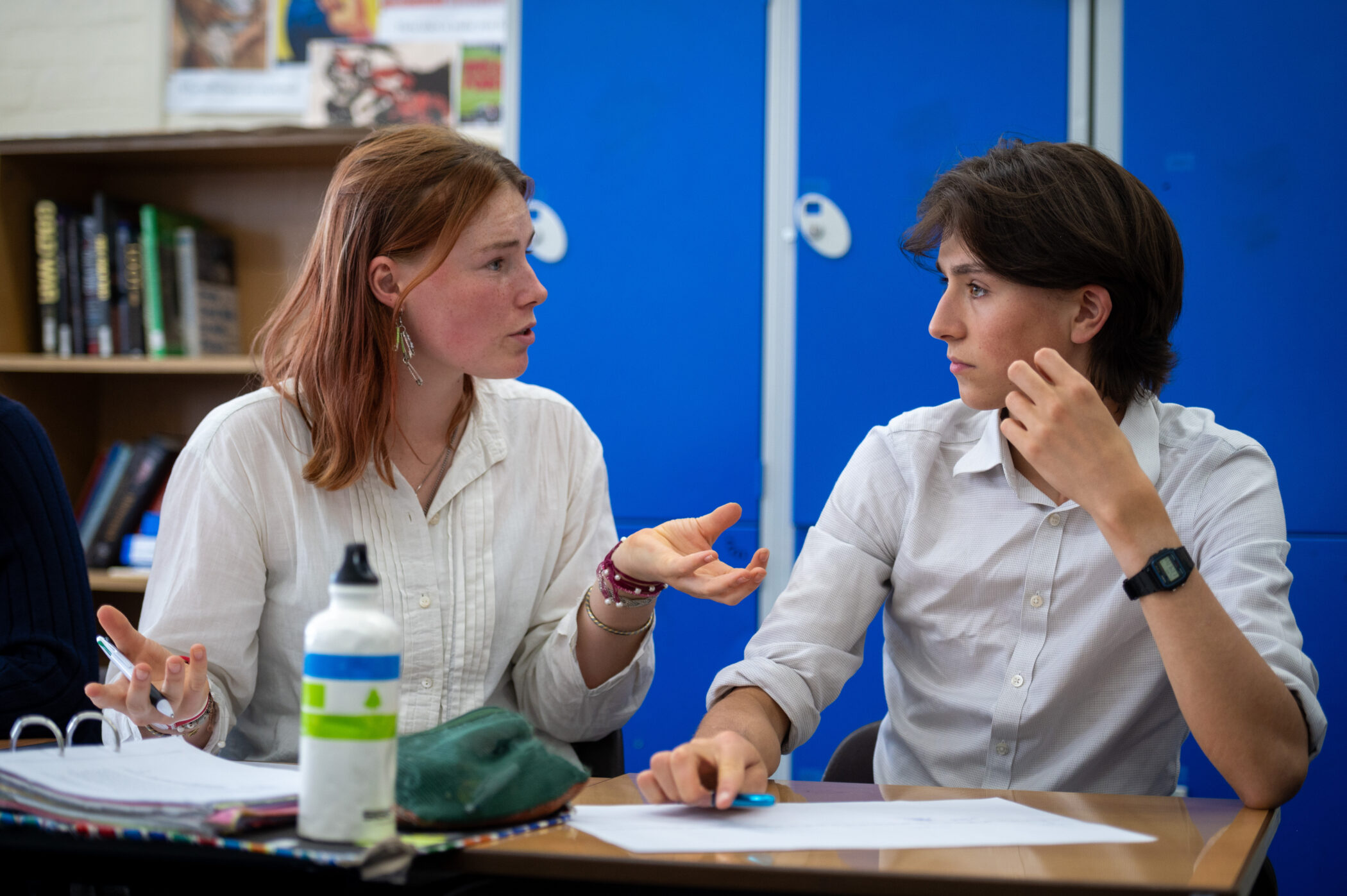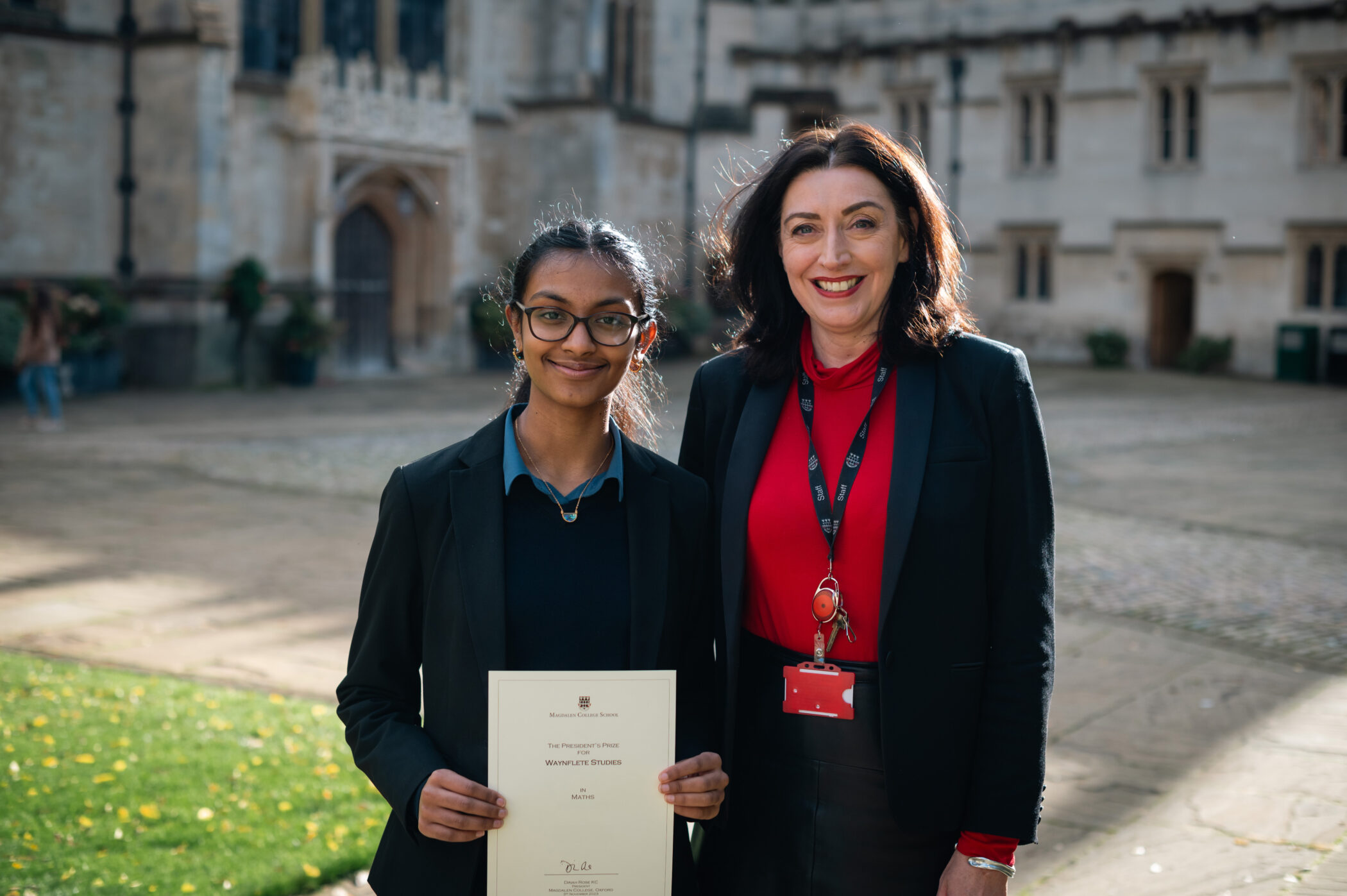A Level Spanish
The Modern Languages Department at MCS aims to provide enjoyment and intellectual stimulation as well as a rewarding and successful learning experience that will allow pupils to participate confidently and competently in communicative exchanges with native speakers.
The emphasis in the A Level is on authentic language and culture. As a learner of Spanish, you will be able to explore aspects of the historical and sociological changes that have shaped Spain and transformed it into one of the most forward-looking countries in the European Union. Equally, if you are interested in economics, medicine or the law as a career you will be able to develop an oral and written competency that will allow you to work in the most important international and national institutions with the sound knowledge and confidence that you will not only stand your ground but also adapt and react flexibly to any communicative situation that your work throws at you.
Above all your teaching will be first-rate, delivered by passionate teachers who know from experience what it’s like to learn a foreign language, and will be able to support you through these two life-shaping years.
The Edexcel A Level syllabus for Spanish aims to:
- Develop the ability to interact effectively with users of the language in speech and in writing, including through online media.
- Develop fluency and confidence.
- Engage critically with intellectually stimulating texts and films.
- Develop knowledge about matters central to the society and culture, past and present, of the country or countries where the language is spoken.
- Mediate between cultures and between speakers of the language and speakers of English.
- Equip students with transferable skills such as autonomy, resourcefulness, creativity, critical thinking, and linguistic, cultural and cognitive flexibility that will enable them to proceed to further study or employment
- Develop as independent researchers through the language of study.
Examination arrangements and course content for Edexcel A Level Spanish
- Paper 1: Listening, reading and translation (40%)
A series of listening and reading exercises and a translation into English. Pupils are expected to manipulate the target language accurately and understand texts drawn from different sources: 2 hrs
- Paper 2: Written response to works and translation (30%)
This paper is based on the study of a literary text and a film, both studied in class, and a translation into Spanish. Pupils write two 350-word essay responses to a Federico García Lorca text and a Pedro Almodóvar film: 2hrs 40 minutes
- Paper 3: Speaking (30%)
Internally conducted and externally assessed at the start of Trinity term: 18 minutes and 5 minutes preparation. Pupils chose an Independent Research Project based on one of the themes or on their own subject of interest related to the society and culture of the language studied. They are expected to select and present information, and to organise their arguments and ideas logically. Pupils will learn to research and discuss aspects of the history, current affairs or cultures of Spanish-speaking countries.
Pupils choose an oral topic for U6th according to their interests, which they research independently and discuss in their weekly oral lessons with our dedicated Spanish Language Assistant. Furthermore, those wanting to pursue any kind of Spanish course at university attend weekly tutorial style sessions in U6th led by our Waynflete Academic, which in turn further develops their literary and analysis skills.
Study content includes four topics in L6th in the context of Spain only: social issues and trends in relation to the family, the world of work and tourism and in the context of Spanish-speaking countries and communities: artistic culture through music and festivals and traditions and political and artistic culture through media. In U6th set in the context of Spain only social issues and trends in relation to immigration and Franco’s dictatorship and the transition to democracy eg the political culture from 1936 to 1981.
| Suggested preparation and further inspiration | ||
| In Our Time | The Spanish Civil War | |
| Language and the Mind | ||
| kiosko.net/es/ | Read the news in Spanish to familiarise yourself with current social, political and cultural topics in Spain and the Hispanic world. This will support L6th reading and listening, and help your individual oral lessons. | |
| Sierra i Fabra, Jordi | Campos de Fresas | The story of a young girl on a night out and the consequences of her actions, by a very popular author of literature for young people. |
| Cervantes Virtual Institute | selection of Poems by Pablo Neruda | Just for fun! Playful combinations of words meant to be enjoyed for their sounds and imagery. Deceptively simple, but great fun for poetry beginners. |
| Esquivel, Laura (film dir. Alfonso Arau) |
Como agua para chocolate | It is always good to choose a realistic novel with a fast paced story line, if you have not read literature in Spanish before (though it is available in translation). Based on revolutionary Mexico, it tells a story of traditions, love and misfortunes all in the setting of the protagonist’s kitchen – with some revolution thrown in! |
| del Toro, Guillermo | El laberinto del fauno (Pan’s Labyrinth) | The story of a brutal post-war Spain through the eyes and magical imagination of a young girl in a rural environment: fantasy, darkness and the triumph of innocence. |
 MCS ranks among the top independent secondary schools, and in 2024 was awarded Independent School of the Year for our contribution to social mobility.
MCS ranks among the top independent secondary schools, and in 2024 was awarded Independent School of the Year for our contribution to social mobility.

 28 of our pupils achieved 10 or more 8 or 9 grades in 2024.
28 of our pupils achieved 10 or more 8 or 9 grades in 2024.
 In 2023-24, MCS received over £448,000 in donated funds.
In 2023-24, MCS received over £448,000 in donated funds.

